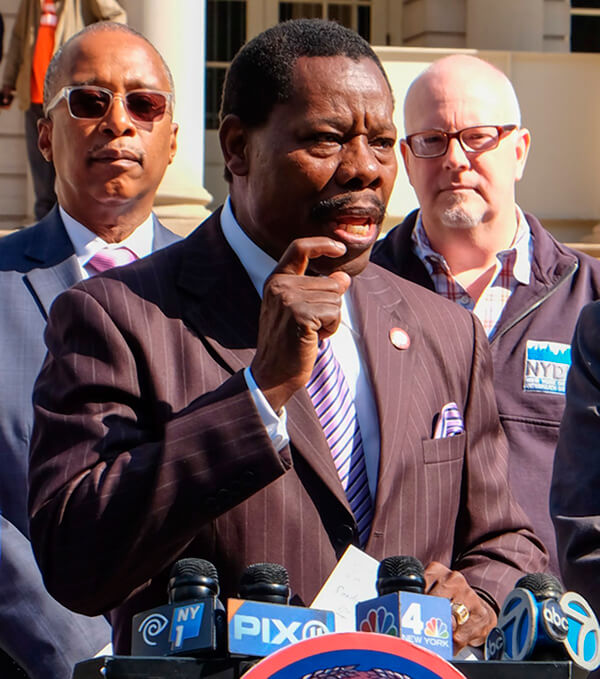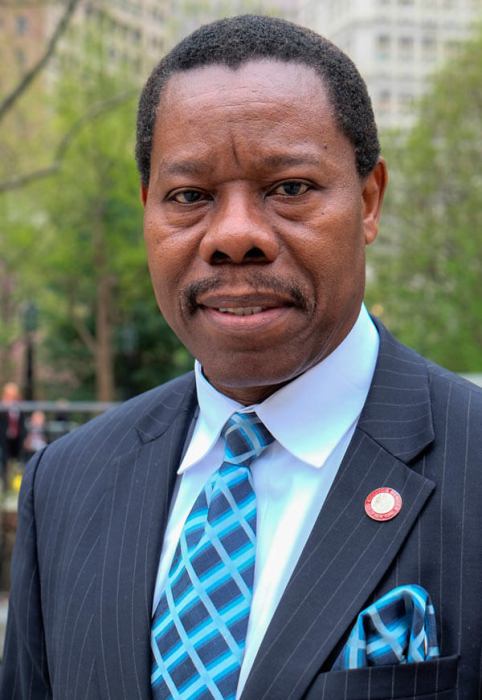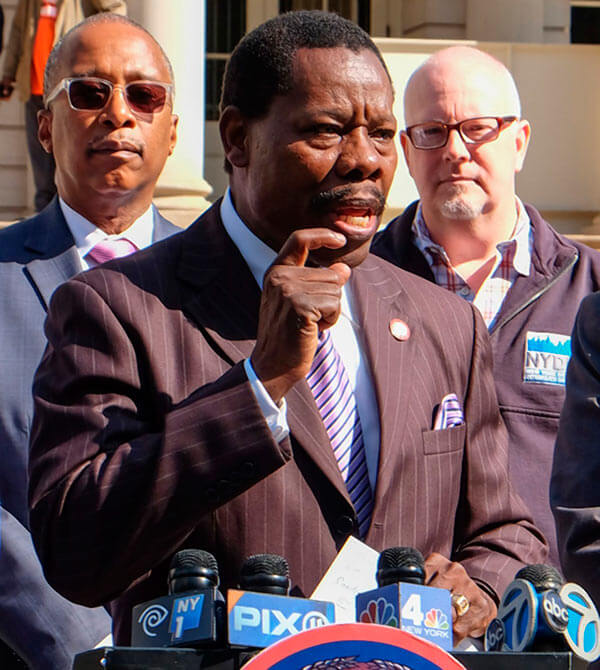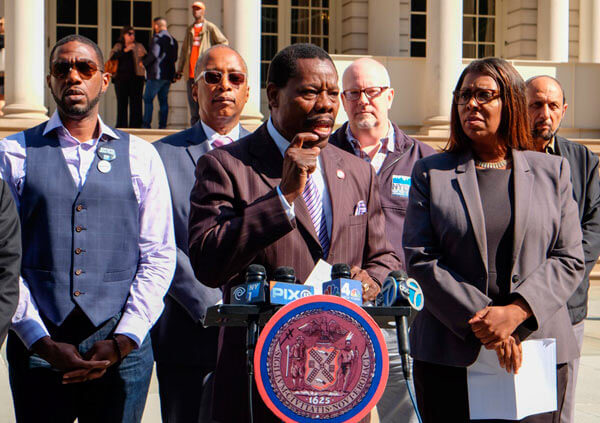The Temporary Protective Status (TPS) of Haitians in the United States is under questionable circumstances with the new and incoming administration. Fears of restrictive immigration changes when President-elect Trump enters the office looms in the concerns of many Haitian Americans, including a Ditmas Park councilman.
Councilman Mathieu Eugene recently introduced Resolution 1290 to the City Council, which aims to protect the status of Haitians entering and living in the country. He said that by not allowing Haitians to stay in the United States following the destructive Hurricane Matthew, which weakened living conditions, immigrants are subject to the country’s concurring and dire vulnerable state.
“Haiti has seen many natural disasters and all of those disasters have created so much devastation, which makes the living situation there worse,” he said. “Haiti is always in a difficult situation — and now we have a lot of people in United States granted TPS.”
In the aftermath of the deadly earthquake in 2010, the Department of Homeland Security granted TPS to Haitians. Eugene said this grant lessens the strain already put on the country.
“The earthquake was a big blow to Haiti and up to now Haiti is still trying to recover from it, and recently hurricane Matthew destroyed the southern part of the country killing animals and vegetation,” he said.
He said Haiti’s government cannot sustain the demands of its citizens locally and abroad, due to the constant destruction that they cannot prepare for.
“Haiti is not in the position to handle all of those people,” he said. “Haiti is facing so many difficulties because of disasters and if they send them back, this is going to ruin social life.”
Now almost seven years since it was introduced, some are feeling fearful of the policy changing into something that it was not, particularly as the threat of deportation grows. But Eugene said his legislation is asking for an extension that will allow Haitians to stay and live in the states, to allow Haitians living here to be free of other concerns in addition to the ones they deal with here.
“When they deport people to Haiti that will affect Haitian-American citizens,” said Eugene. “Those are their children, brothers, sisters — that is going to affect them and their livelihood, because they would be forced to take care of them when they get back to Haiti.”


























